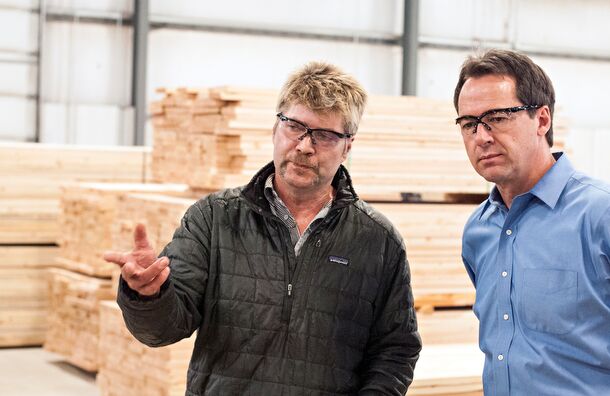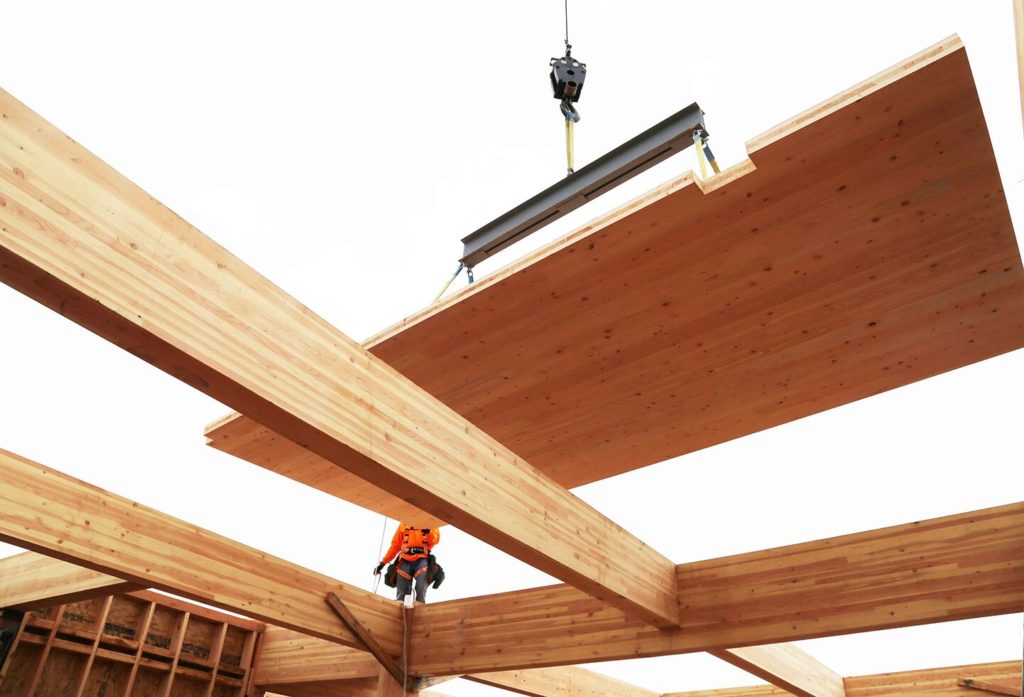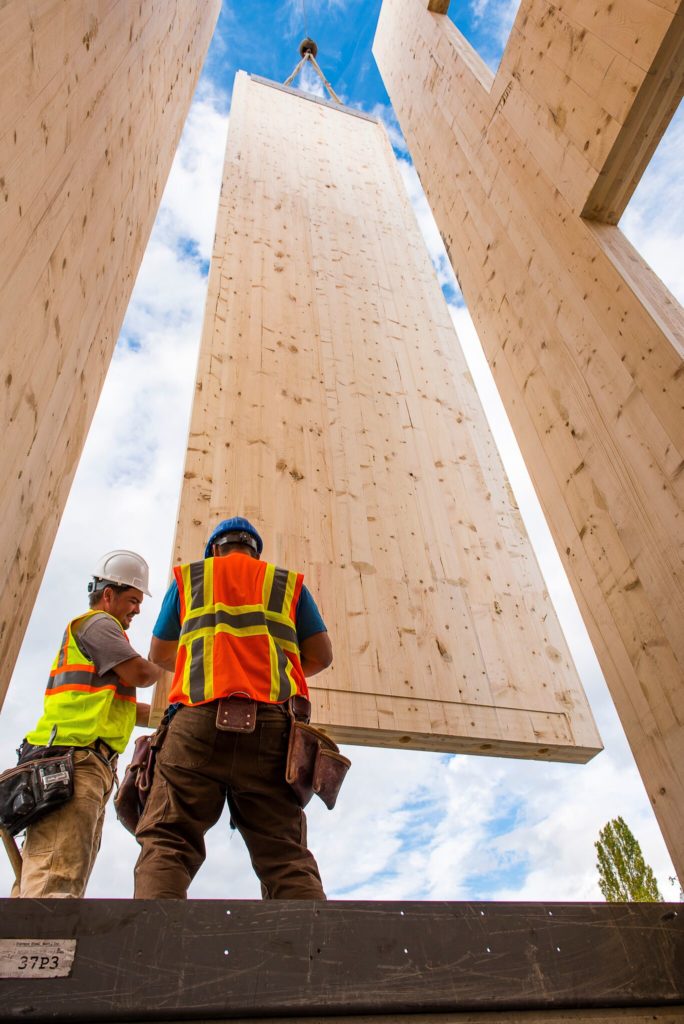
SmartLam Technologies Group, the first U.S. manufacturer of cross-laminated timber products, intends to quadruple its production of CLT and develop new types of engineered wood products with an expansion into the former Weyerhaeuser lumber mill site in Columbia Falls, Montana.
Weyerhaeuser shuttered the mill in August 2016, seven months after merging with Plum Creek Timber Co., and put the 40-acre site up for sale this past summer. SmartLam has signed a long-term lease on part of the acreage with the new owners, Columbia Rising LLC, which plans to redevelop the remainder of the site into a rail-served industrial park.
The move, planned no later than Jan. 1, 2018, will accommodate SmartLam’s headquarters as well as its expanding manufacturing facilities. The company anticipates employing 75 workers by the end of 2019.
“As more architects and builders learn about the performance and efficiency of CLT, demand for our products has accelerated rapidly,” said Casey Malmquist, president of SmartLam. “We have been looking for the right location to continue to grow our company as we launched it: mindful of the available resources, positioned optimally to receive locally-sourced raw materials, and accessible to multiple modes of transportation. This site is the right home for us.”
SmartLam believes the expansion, and its state-of-the-art CLT equipment line, will allow the company to increase production from 20,000 cubic meters annually to 80,000, as well as to pave the way for additional product certification, development and innovation.
Earlier this year, Malmquist told Treesource that he also wants to take SmartLam national.
“We are scoping sites in the Southeast and Northeast – the other two major wood baskets in the U.S.,” he said. “Within the next 18 to 24 months, we aim to build plants in both regions.”

American CLT manufacturing has entered a new phase of growth this year, with major announcements from Vaagen Brothers Lumber (Colville, Wash.), Freres Lumber Co. (Lyons, Ore.), SmartLam (Columbia Falls, Mont.) and International Beams (Dothan, Ala.).
Each company is staking its future on mass timber as the next great disruptor in the construction industry. Their optimism is based on multiple factors: CLT has a lighter carbon footprint; is at least 25 percent faster to build with and requires 75 percent fewer workers on the active deck; comes from forests that are renewable and that, in many cases, need thinning to reduce the danger of wildfire and disease; holds considerable promise as affordable housing; and even increases homeowners’ health and well-being, according to several studies of wood’s biophilic attributes.
Malmquist sees CLT as the connective tissue between the need to reduce the carbon footprint of the built environment and the need to improve forest health nationwide.
“I think now we have a really compelling argument within the environmental group to have this discussion,” he told Treesource. “Let’s build an understanding of sustainable forestry and couple that with the choice of using wood to offset the carbon impacts of concrete and steel. To me, that’s a no-brainer choice. We can manage our forests, but we’re going to have a much more difficult time managing the effects of climate change.”
SmartLam’s increased production capacity will require about 40 million board feet of timber per year, up from its current volume of 10 million to 12 million.
Stoltze Land and Lumber in Columbia Falls supplies 25 to 40 percent of the 2-by-6 and 2-by-8 lumber the company needs. Regional mills from Montana, Idaho and Washington state supply the rest.
CLT is a wood panel typically consisting of three, five or seven layers of dimensional lumber oriented at right angles to one another and then glued to form structural panels.
The panels have such strength, dimensional stability and rigidity that they can be used to construct high-rise buildings. In testing, they have also been found to withstand earthquakes and the two-hour fire tests required for high-rises in the United States.


[…] in the footsteps of other family businesses that have moved into the mass timber market, Freres Lumber has taken the entrepreneurial leap into […]